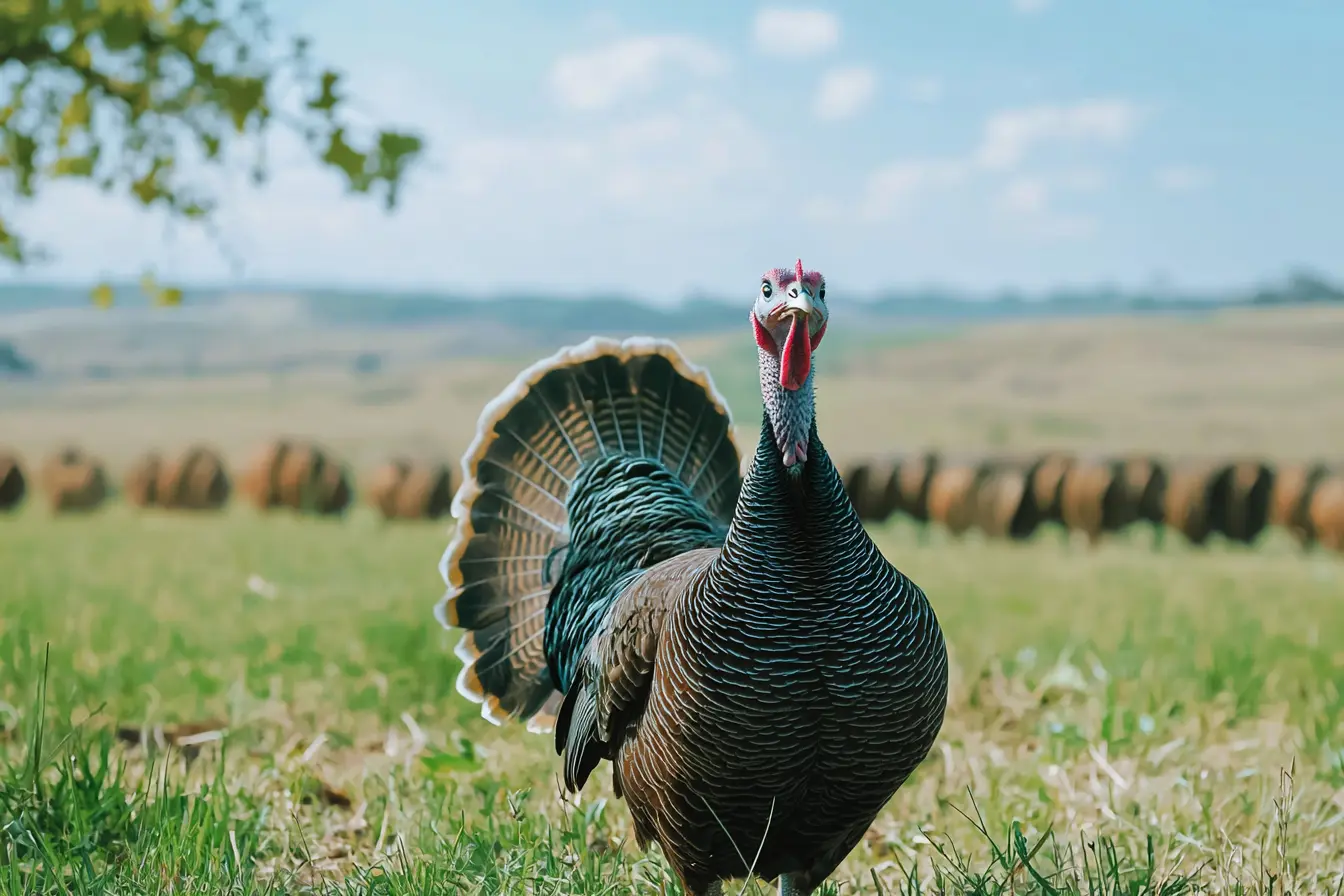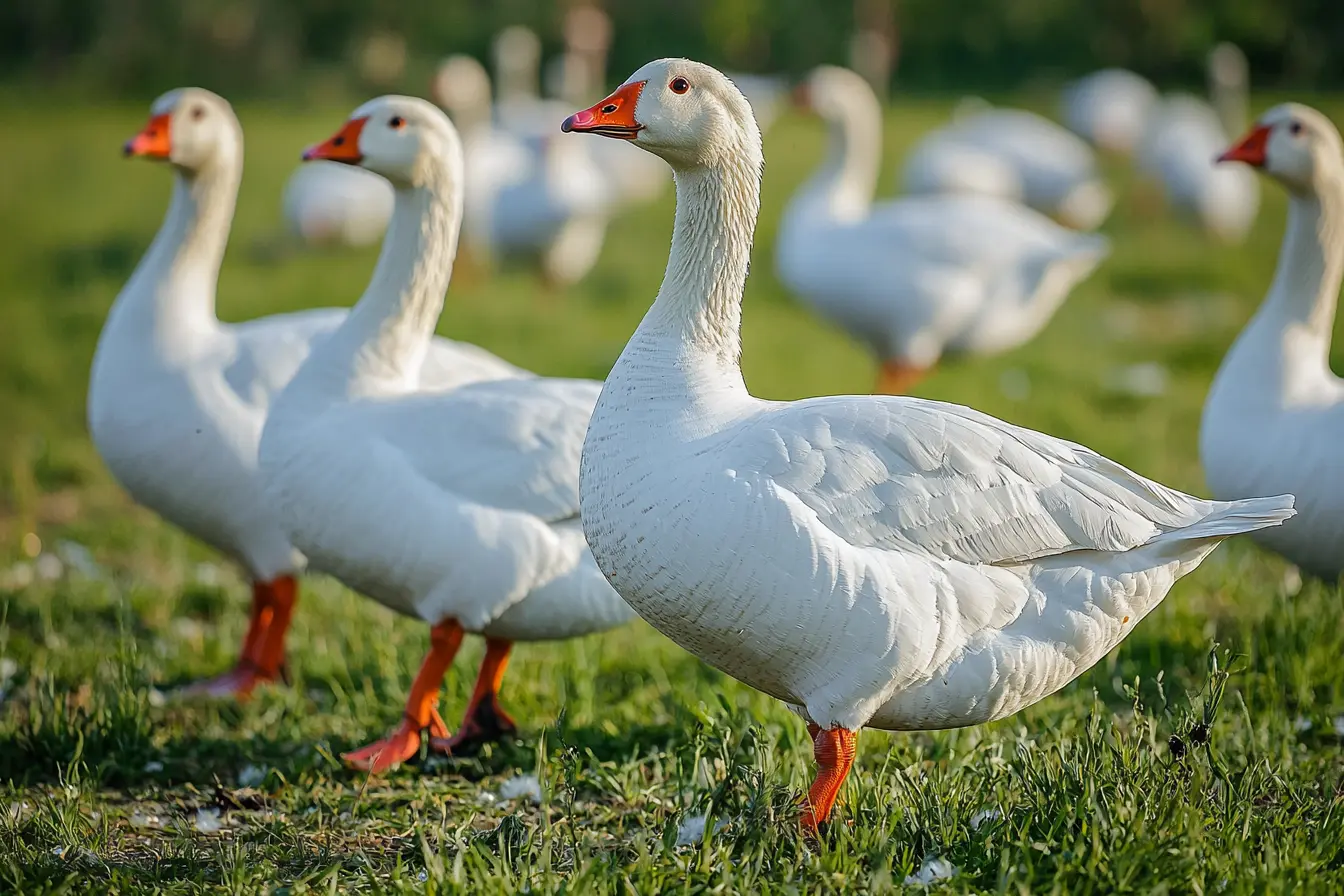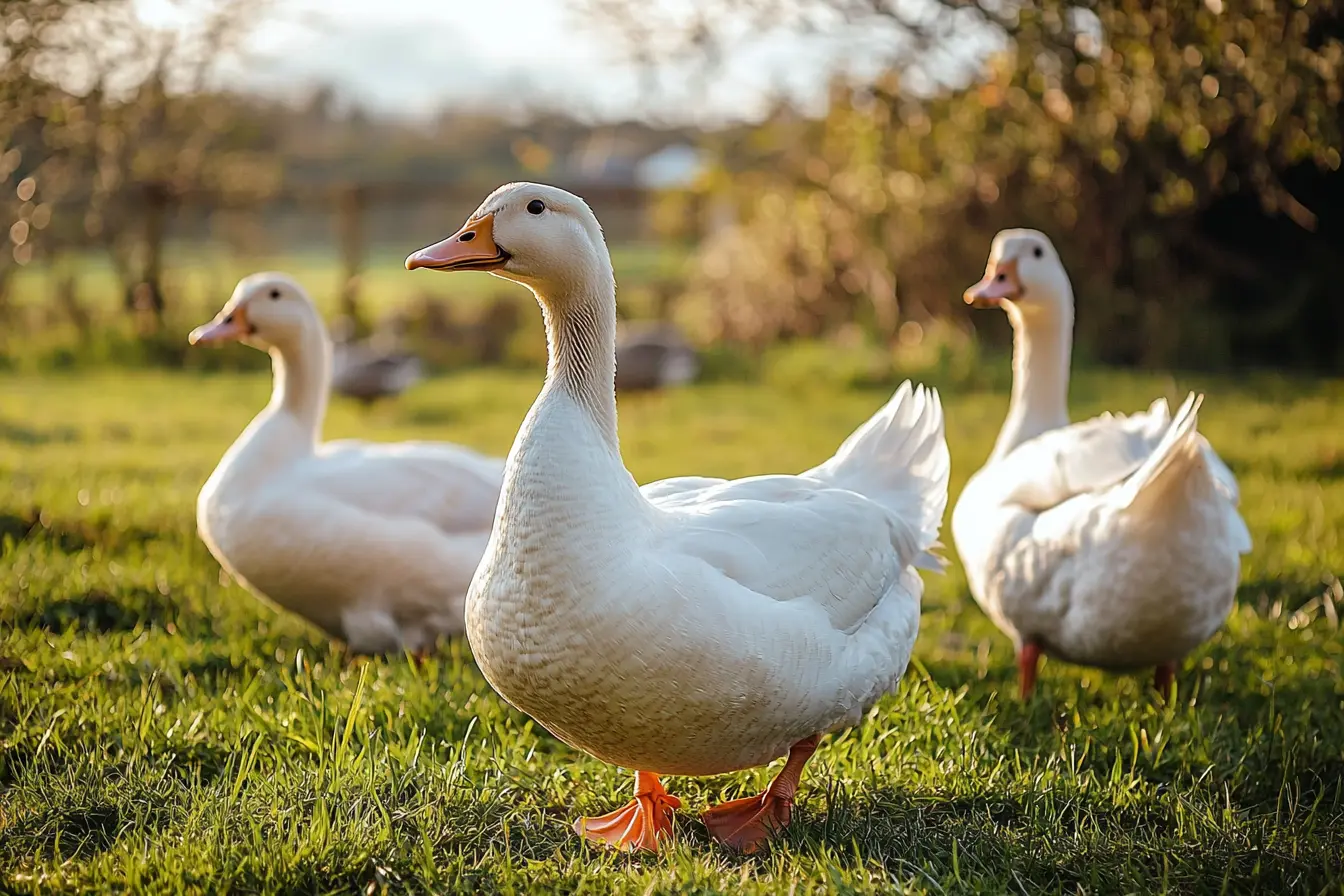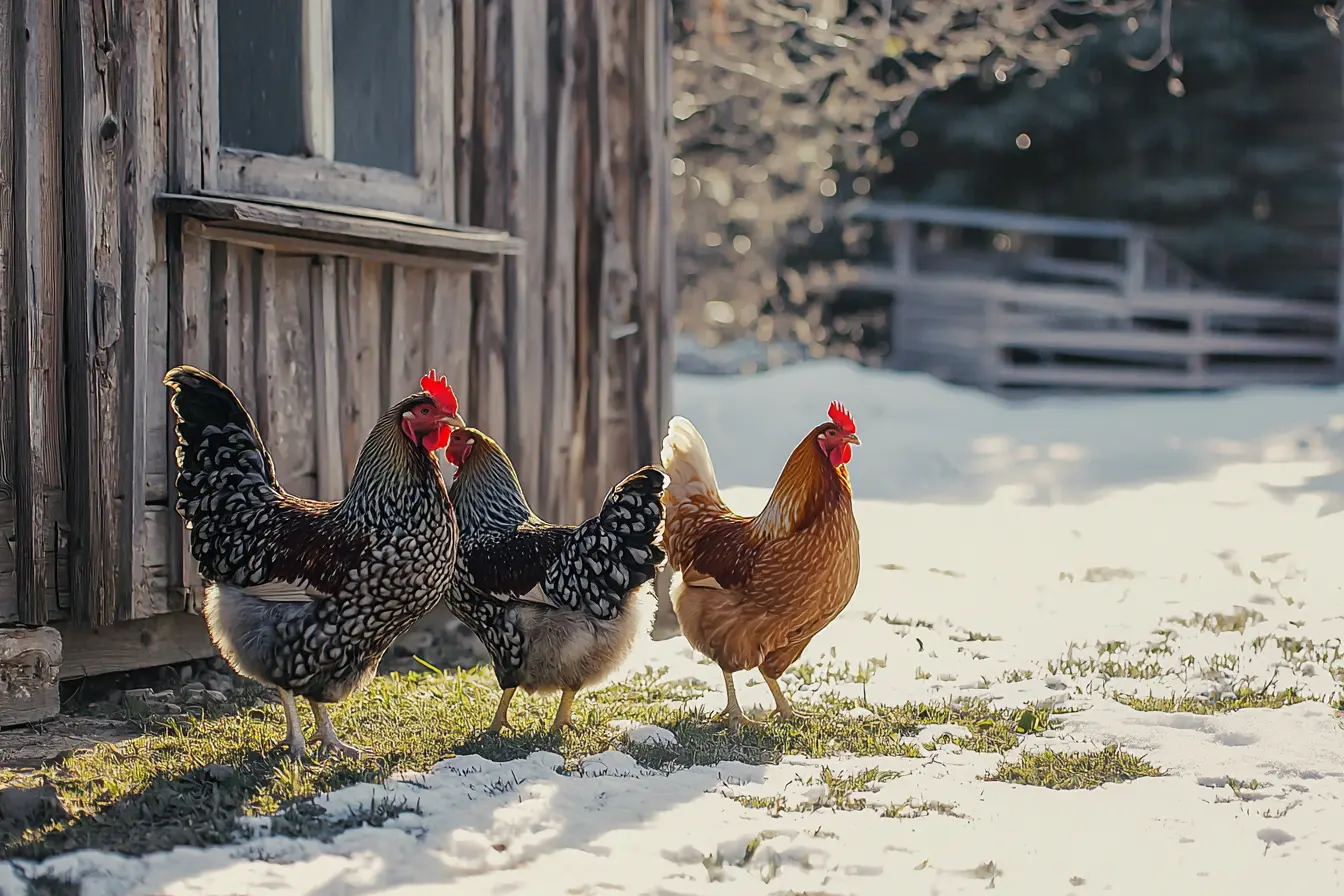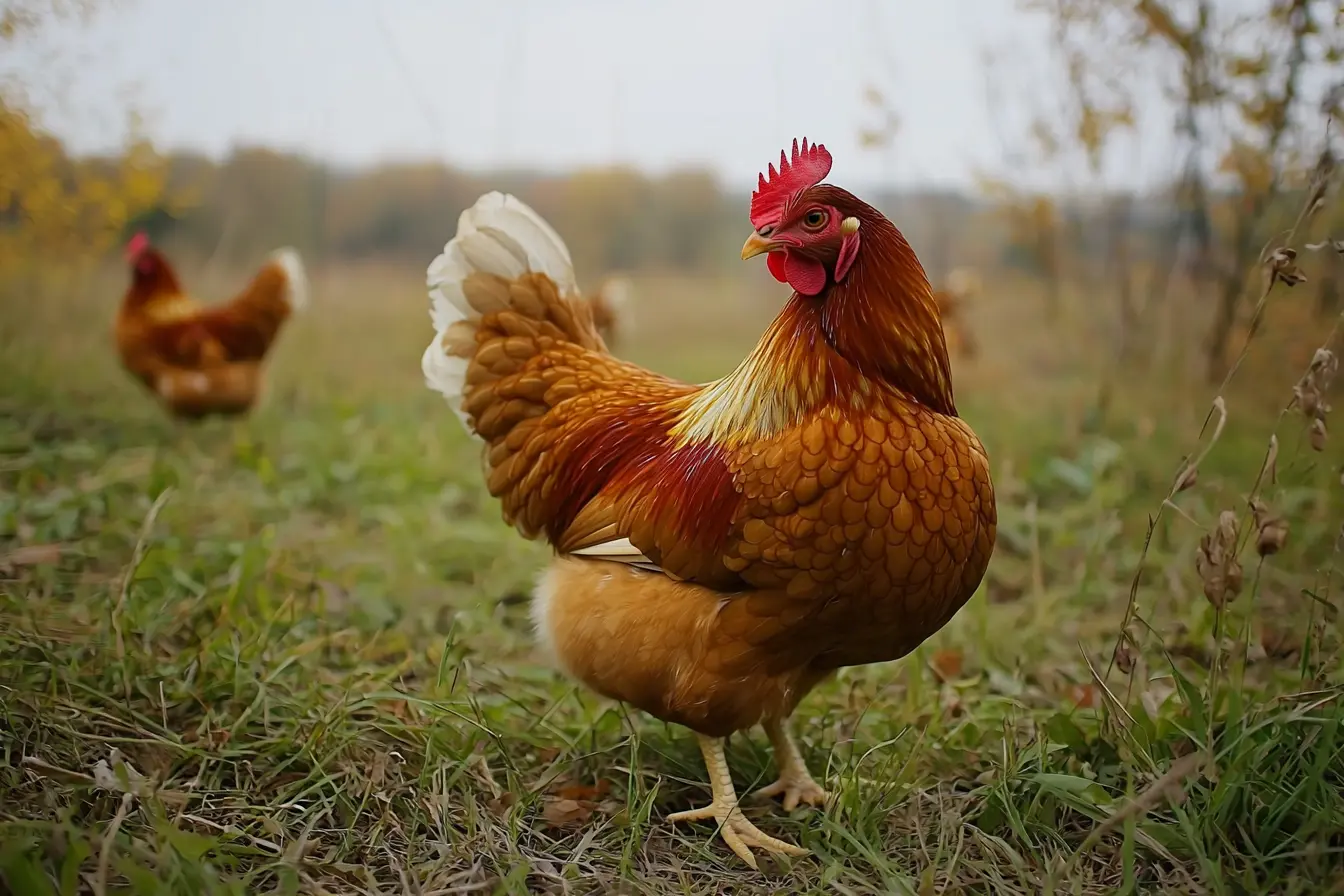
A Complete Guide to Golden Comet Chickens for UK Owners
Golden Comet chickens are an increasingly popular choice among poultry keepers, thanks to their friendly disposition, excellent egg-laying capabilities, and ease of care. Whether you're a first-time chicken keeper or looking to expand your flock, this guide will provide everything you need to know about owning and caring for Golden Comet chickens.
Introduction to Golden Comet Chickens
Golden Comets are a hybrid breed, created by crossing a Rhode Island Red hen with a White Leghorn rooster. They are renowned for their prolific egg production and gentle nature, making them an ideal choice for families and smallholders alike.
Key Characteristics:
- Lifespan: 4-6 years (sometimes longer with excellent care)
- Egg Production: 250-320 brown eggs per year
- Temperament: Friendly, docile, and easy to handle
- Size: Medium (hens weigh approximately 2-3 kg)
- Colour: Reddish-gold with white tail feathers
Why Choose Golden Comets?
Golden Comets are highly recommended for their numerous benefits:
- Exceptional Layers: Producing an abundance of medium to large brown eggs, they are perfect for households that rely on a steady egg supply.
- Low Maintenance: They are hardy birds, adaptable to different weather conditions across the UK.
- Friendly Nature: Ideal for children and beginners, as they enjoy human interaction.
- Efficient Feed Conversion: They require less feed compared to other laying breeds while maintaining high egg output.
Housing Requirements
Providing a safe, comfortable, and predator-proof environment is crucial for their well-being.
Coop Requirements
- Size: Allow at least 0.3 square metres per bird inside the coop.
- Ventilation: Ensure proper airflow to prevent respiratory issues.
- Nesting Boxes: Provide one box per 3-4 hens; lined with straw or wood shavings.
- Perches: Each hen needs around 20-30 cm of roosting space.
Run and Free-Range Space
Golden Comets enjoy foraging and should have access to an outdoor run or free-range space.
- Recommended space: At least 1 square metre per bird, though more is always better.
- Security: Protect against foxes and other predators with secure fencing and overhead netting.
Feeding Your Golden Comet Chickens
A balanced diet is essential for their health and productivity.
Essential Nutrition
- Layers Pellets (16-18% protein): Provides essential nutrients and calcium for strong eggshells.
- Grit: Helps with digestion and should be available at all times.
- Greens and Treats: Offer leafy greens, mealworms, and occasional kitchen scraps (avoid salty or sugary foods).
- Fresh Water: Ensure a constant supply of clean water, especially in hot weather.
Feeding Tip: Avoid feeding excessive treats, as this can reduce egg production.
Health and Common Issues
Golden Comets are generally healthy birds but can be prone to a few common poultry ailments.
Common Health Concerns
- Egg-laying issues: Due to their high production, they can be susceptible to egg binding or calcium deficiencies. Providing additional calcium (e.g., oyster shells) can help.
- Mites and Lice: Regularly inspect and treat with poultry-safe powders or sprays.
- Respiratory Infections: Ensure the coop is well-ventilated and free from damp conditions.
- Parasites: Worming the flock every 3-6 months is recommended to maintain optimal health.
Regular Checks: Observe their behaviour daily, looking out for signs of illness such as lethargy, loss of appetite, or abnormal droppings.
Golden Comet Behaviour and Handling
Golden Comets are known for their docile and friendly nature, making them easy to handle.
- They enjoy following their owners around and can often be trained to come when called.
- Handle them gently and regularly from a young age to keep them tame.
- They are not particularly flighty but may need clipping if you notice them attempting to escape.
Egg Production and Collection
Golden Comets start laying from around 16-18 weeks of age, producing consistently throughout the year.
Tips for Maximising Egg Production:
- Consistent Lighting: A regular daylight schedule helps maintain laying patterns.
- Calcium Supplements: Essential for shell strength.
- Clean Nesting Boxes: Prevents dirty eggs and encourages hens to lay consistently.
Egg Collection: Aim to collect eggs daily to prevent them from being damaged or eaten by the hens.
Winter Care for Golden Comets
Golden Comets are cold-hardy but require some additional care during the UK's colder months.
- Insulation: Ensure the coop is draught-free but well-ventilated.
- Water Management: Use heated drinkers or check regularly to prevent freezing.
- Extra Feed: Increase feed slightly to maintain their energy levels in cold weather.
Breeding and Lifespan Considerations
Since Golden Comets are a hybrid breed, they do not breed true, meaning their offspring will not have the same consistent characteristics.
- Not Ideal for Breeding: If breeding is a priority, consider purebred alternatives.
- Lifespan: Their high egg production may shorten their lifespan compared to heritage breeds.
Legal Considerations in the UK
Before keeping chickens, check local council regulations and ensure compliance with any restrictions regarding poultry keeping.
Key Considerations:
- Noise Control: Hens are generally quiet, but cockerels may not be permitted in some areas.
- Avian Influenza Restrictions: Stay updated on DEFRA guidelines to prevent outbreaks.
- Neighbour Considerations: Inform your neighbours and take measures to prevent nuisance.
Conclusion
Golden Comet chickens are an excellent choice for UK poultry keepers seeking a friendly, productive, and easy-to-care-for breed. With the right housing, nutrition, and care, they will reward you with an abundance of eggs and companionship.
Whether you're new to chicken keeping or adding to an existing flock, Golden Comets are sure to bring plenty of joy and fresh eggs to your home.
Contents
- Introduction to Golden Comet Chickens
- Why Choose Golden Comets?
- Housing Requirements
- Feeding Your Golden Comet Chickens
- Health and Common Issues
- Golden Comet Behaviour and Handling
- Egg Production and Collection
- Winter Care for Golden Comets
- Breeding and Lifespan Considerations
- Legal Considerations in the UK
- Conclusion
Tags
Vets near you
Speciality vets
- Aquatics vet specialists
- Birds vet specialists
- Camelids vet specialists
- Cats vet specialists
- Cattle vet specialists
- Deer vet specialists
- Dogs vet specialists
- Equines vet specialists
- Exotic vet specialists
- Goats vet specialists
- Pigs vet specialists
- Poultry vet specialists
- Sheep vet specialists
- Small Mammals vet specialists
- Wild vet specialists
Vet facilities
- Accessible by public transport
- Blood testing
- Car park nearby
- Client car park
- Dentistry
- Diagnostic imaging
- Disabled public access
- Flea and worm treatments
- Microchipping
- Mobile services
- Neutering
- Open at weekends
- Out-of-hours service
- Referral interests
- Referrals only
- Street parking outside
- Toilets available
- Vaccinations
